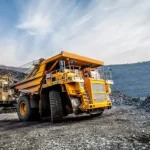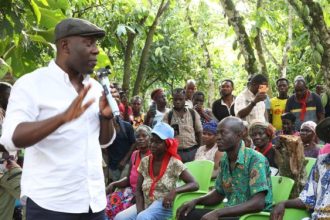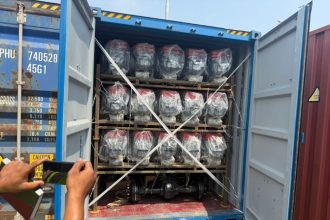Economist Professor Peter Quartey has said a high expenditure by the government in 2021 is acceptable so far as Ghanaians would gain value.
He believes government must spend in productive areas to revive the economy after the adverse impact of COVID-19.
Ghana’s Gross Domestic Product (GDP) growth rate hit 6.5 per cent in 2019, but the pandemic wiped out the gains leaving the country at 0.9 per cent by the end of 2020.
The government is seeking parliamentary approval for GHȻ 111.3 billion as total expenditures while expecting total revenues and grants of GHȻ 72.1 billion for the year.
The expenditure for 2021 is also 13 per cent higher than the GHȻ 98.1 billion approved by parliament for 2020.
The Director of the Institute of Statistical, Social and Economic Research (ISSER) told theghanareport.com the “request to spend is justifiable” if only “we get value for money in all the expenditures”.
“The only way you can come out of recession is to spend. If you prepare an austere budget in a pandemic, we will stay in that recession for a very long time”.
The government needs revenue to roll out a GH¢100bn CARES Programme, and the economist is optimistic “we will move from our current situation”.
Ghana’s 2021 budget was presented to parliament on Friday, March 12, highlighting post-COVID recovery policies and programmes to boost the economy via the private sector.
Taxes dominated the budget, but some rebates were given to small and medium firms, which the economist said would help private businesses and households.
For him, the government’s macro-economic targets were within acceptable limits.
Post-COVID recovery by 2024
Professor Quartey wants Ghanaians to avoid high hopes of a quick recovery as he projects four more years for economic activities to hit pre-COVID levels.
Development “would not be drastic, especially this year because we have just moved from a recession”.
“It would take a couple of years before we get to the Pre-COVID era,” he noted. “We need to manage our expectations; by 2024, we should see ourselves either ahead to pre-COVID or close to the pre-COVID situation”.
Borrow to spend wisely
To stimulate growth, he is not opposed to borrowing, which would be invested in the right sectors.
Ghana’s debt stock now stands at 291.6 billion cedis, 76.1 per cent of GDP as of the end of December 2020.
This is more than double what was recorded in 2016. It has increased by 138% over the last 4 years.
Some critics, especially the minority, has raised red flags over the development.
But due to the COVID-19, Professor Quartey suggests “even if we have to borrow, borrow and spend wisely so that we can come out of that recession”.
Comparatively, he said the UK has embarked on a path of expenditure with calls by its Prime Minister to build and develop their economy, notwithstanding a debt to GDP ratio which far exceeds that of Ghana.
He cited similar situations in the US and South Africa.
However, he advised the government to cut the debt to GDP ratio in the coming years.
He wants a clear medium-term strategy that would slash the debt to GDP within the next three to four years to below 70 per cent.
Pursue innovative ways of revenue generation
Only GH¢11,423 million out of the total expenditure has been earmarked for capital infrastructure, the rest for wages, interest on loans, emoluments and statutory payments.
The paltry amount has been the trend for decades, and Professor Quartey advises a reversal.
The government should pursue aggressive programmes to raise revenue domestically.
“We have always used external sources to finance capital expenditure, but that is not sustainable,” he added. “There should be new ways to finance recovery”.
He wants the digitisation programme by the government to be extended to revenue collection to plug the loopholes.
He was concerned about the Ghana Revenue Authority (GRA) inefficiency in tackling revenue leakages, especially in the extractive sector due to underreporting.
“Why do we continue to rely on people’s discretion for valuation? We should put in some automation in the mining sector to capture production,” he admonished.















